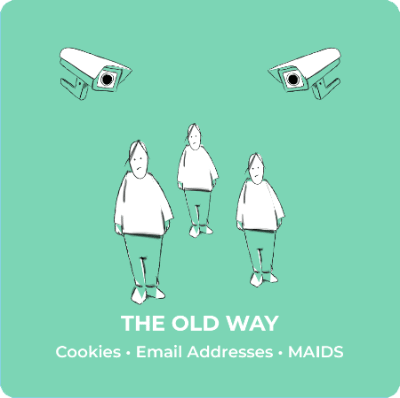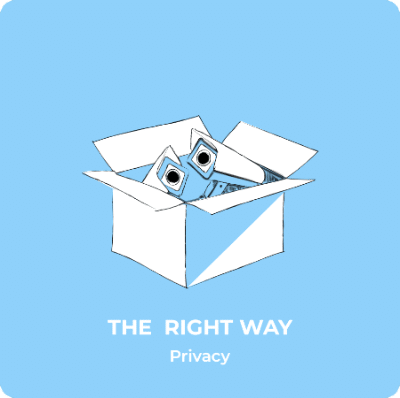The Evolution of tracking
For years, online advertising operated like a digital stakeout. Every click, scroll, and purchase was logged, repackaged, and sold. The industry relied on cookies, mobile ad IDs (MAIDs), and email addresses to fuel ad targeting.

The old way was marked with relentless tracking, breaking the promise of the internet as a private place to explore topics of interest.
Without consent or knowledge, every page visit, click, mouse-over, whatever was packaged up, labeled as a cohort sold to the highest bidder. Human beings became products sold by endless data companies.
And so consumers rebelled.

Today, terms like hashed emails, data clean rooms, and ID resolution are framed as solutions. While they aim to address privacy concerns, many of these approaches still involve collecting, tracking, and sharing user data—just with new labels.
Despite industry pledges, true privacy remains elusive. The question isn’t whether tracking methods have evolved, but whether they’ve fundamentally changed.

Instead of rebranding old tracking techniques, there’s a more effective and privacy-friendly approach: eliminating personal tracking altogether. It’s possible to reach the right audiences without invasive data collection.
At Digiseg, we do this every day. By focusing on real-world, cookieless data, we help advertisers achieve strong results—without compromising user privacy.
Privacy-first advertising isn’t just possible—it’s the smarter choice.
